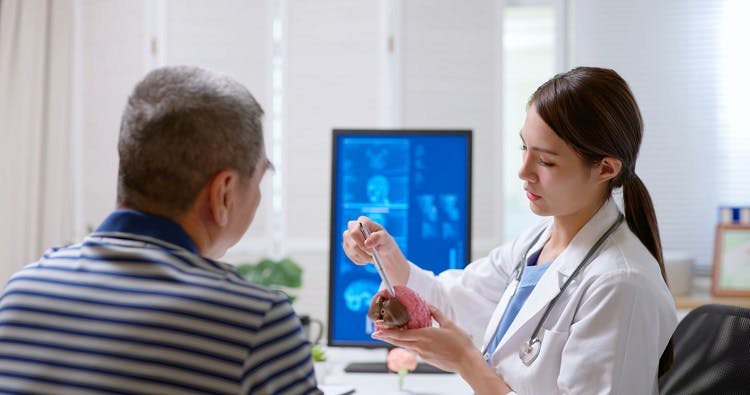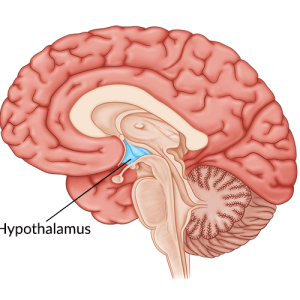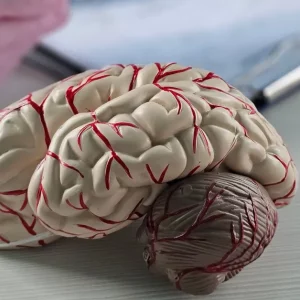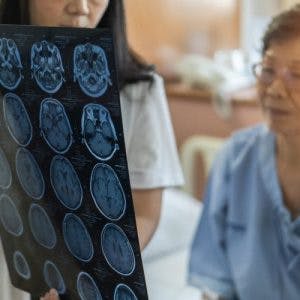An acquired brain injury may occur after birth for a variety of reasons, including stroke, TBI, or infectious disease. Depending on the severity and location of the acquired brain injury, individuals may experience physical, cognitive, and/or emotional effects.
Fortunately, many effects can be improved with a combination of different treatments, such as therapy and medication. Therapists and physicians can guide individuals through the rehabilitation process and identify treatments that are safe and effective for their specific needs.
This article will discuss the causes of acquired brain injury, its symptoms, and potential treatments to help promote recovery.
Use the jump links below to help you navigate through the article:
- What is an acquired brain injury?
- Different types of acquired brain injuries
- Acquired brain injury physical, cognitive, and emotional symptoms
- Effective treatments for an acquired brain injury
What Is an Acquired Brain Injury?
An acquired brain injury refers to brain damage caused by events occurring after birth. This means that acquired brain injuries are not genetic or congenital (present at birth), but rather are the result of neurological conditions and injuries.
Common causes of acquired brain injuries include:
- Stroke
- Traumatic brain injury (external force, blow, or jolt to the head)
- Infectious brain diseases (such as encephalitis and meningitis)
- Brain tumors
- Metabolic disorders
Individuals may develop also an acquired brain injury due to anoxic (no oxygen) brain injury or hypoxic (low oxygen) brain injury events. These can occur due to airway obstruction, brain hemorrhage, drug abuse, and heart or kidney failure. Because an acquired brain injury can be caused by various factors, it’s important to obtain a proper diagnosis from a medical provider.
Types of Acquired Brain Injury
Acquired brain injuries can often be divided into two categories. Traumatic acquired brain injuries occur due to an external force, while injuries considered to be non-traumatic occur due to internal factors.
Falls, motor vehicle accidents, firearm-related injuries, and assault are the most common causes of traumatic brain injuries. Non-traumatic brain injuries may result from strokes, tumors, anoxia, infections, and metabolic disorders.
Traumatic brain injuries are typically classified into two more categories: open and closed.
Open brain injuries, also known as penetrating brain injuries, refer to injuries involving a fractured skull where the brain is damaged by bone fragments or an external object. Closed brain injuries usually involve internal pressure and shearing, but no skull fractures.
Acquired brain injuries can occur in different areas of the brain. Depending on which brain structure(s) are affected, different symptoms may be present. Understanding acquired brain injury symptoms can help individuals seek the necessary care and treatment.
Acquired Brain Injury Symptoms
Different areas of the brain control different functions. For example, the basal ganglia is a structure in the brain primarily associated with controlling movement. When damage to the basal ganglia occurs, it can affect balance, posture, and other related movements.
Therefore, acquired brain injury symptoms may vary significantly depending on the severity and location of the injury.
To help you understand the various effects that can occur, we’ve compiled a list of some of the most common physical, cognitive, and emotional or behavioral acquired brain injury symptoms.
Physical acquired brain injury symptoms may include:
- Headaches
- Numbness
- Loss of coordination
- Spasticity
- Muscle weakness and/or paralysis
- Dizziness
- Imbalance
- Hearing loss
- Problems with vision
- Seizures or epilepsy
Cognitive symptoms of acquired brain injury may include:
- Difficulty with short-term memory
- Poor decision-making
- Difficulty with speech and communication (such as aphasia)
- Problems with attention and/or concentration
- Executive dysfunction
- Difficulty recalling or learning new information
Emotional & Behavioral acquired brain injury symptoms may include:
- Depression and/or anxiety
- Irritability and/or aggressive behavior
- Lack of insight
- Mood swings (like emotional lability)
- Poor social skills
Because many areas of the brain contribute to multiple functions, individuals with an acquired brain injury may experience a combination of effects that can interfere with daily activities and even recovery. Therapists and physicians can help individuals identify functions affected by their acquired brain injury and find the proper treatment.
Acquired Brain Injury Treatments
Acquired brain injuries are complex medical conditions that often require a combination of treatments to address a wide range of symptoms. Treatment can include medication, therapy, and a rigorous rehabilitation plan.
For instance, doctors may prescribe stimulants like Ritalin to help improve memory after an acquired brain injury, or baclofen and Botox to treat spastic muscles. They may also provide antidepressants like Prozac to help treat depression and other emotional effects.
While medication is helpful, certain drugs may have severe side effects. Therefore, it’s important to consult with a doctor before taking any new medication. Additionally, medication can help manage the symptoms of an acquired brain injury, but it does not address the root cause.
To treat the root cause of acquired brain injury symptoms and promote recovery, individuals must practice therapeutic exercises and/or activities. Practicing exercises and activities related to affected functions helps stimulate the brain and activate neuroplasticity, the brain’s natural ability to heal and repair itself.
Neuroplasticity allows undamaged portions of the brain to take over functions from damaged areas. The best way to activate neuroplasticity is through repetitive exercises and/or activities. When a certain skill is practiced, the brain strengthens its existing neural connections and creates new neural pathways in response.
With more healthy neural pathways in place, symptoms may improve and individuals can begin to regain function. To achieve this, therapists can provide personalized rehab exercises tailored to address one’s specific needs.
Therapies that can help improve acquired brain injury symptoms may include:
- Physical therapy: works to rebuild mobility, strength, endurance, coordination, balance, and flexibility after an acquired brain injury. It encourages neuroplasticity and helps individuals improve function through restorative techniques. Physical therapy interventions can also help increase cerebral blood flow, which provides the brain with the oxygen-rich blood and nutrients it needs to function and heal properly.
- Occupational therapy: helps survivors relearn how to perform activities of daily living such as eating, getting dressed, and bathing. An occupational therapist can address the physical and cognitive effects of an acquired brain injury by providing individuals with the tools they need to maximize independence. Typically, occupational therapy involves a combination of compensatory tactics (including adaptive equipment training) and restorative techniques.
- Speech therapy: focuses on improving cognitive and communication deficits such as aphasia and apraxia of speech caused by an acquired brain injury. Speech therapists can provide survivors with a variety of speech therapy activities to help activate neuroplasticity and improve speech and language skills. They can also provide exercises that address memory, attention, and concentration, making speech therapy an integral aspect of acquired brain injury treatment.
- Cognitive-behavioral therapy: offers an effective way to help survivors cope with the emotional and behavioral symptoms of an acquired brain injury. Many cognitive-behavioral exercises focus on addressing the root cause of symptoms and uncovering unhealthy thinking patterns. For example, if an individual experiences anxiety after an acquired brain injury, a therapist may focus on identifying key factors that trigger feelings of anxiety. Then, they may provide helpful techniques to catch these triggers beforehand to lower the chances of experiencing anxiety or other emotional effects.
- Home therapy: encourages survivors to practice high repetition of therapeutic exercises in between therapy sessions. To promote recovery and see promising results, neuroplasticity must be regularly activated. Therefore, establishing a home rehabilitation program is essential. Therapists may provide individuals with sheets of exercises to practice on their own, and they may also recommend using neuro rehab devices like FitMi. This interactive device can help individuals stay engaged and motivated throughout their rehabilitation process.
Many acquired brain injury symptoms can interfere with the activities of daily living and everyday life. Fortunately, with a proper treatment plan, many of the symptoms of acquired brain injury can improve, allowing survivors to maximize their independence and return to their daily activities.
Understanding Acquired Brain Injury
Acquired brain injury refers to an injury to the brain that occurs after birth. An acquired brain injury is not hereditary or congenital, rather it is often caused by other conditions such as stroke, TBI, and infectious diseases.
Acquired brain injury symptoms may be physical, cognitive, or emotional/behavioral depending on the severity and the location of the injury. Treatments will also depend on the type of acquired brain injury and can often include a combination of different therapies and medication.
We hope this article helped you understand what an acquired brain injury is and how to promote recovery.










